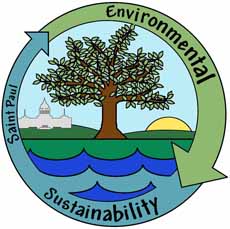 A new National Fuel Efficiency Policy was passed today adding to recent efforts to curb America’s dependence on foreign oil while spurring development in new clean transportation technologies that will help curb greenhouse gas emissions. This new policy, which sets the toughest fuel economy requirements in the country’s history, speeds up, by four years, the fuel economy standards that were passed in 2007 (CAFE).
A new National Fuel Efficiency Policy was passed today adding to recent efforts to curb America’s dependence on foreign oil while spurring development in new clean transportation technologies that will help curb greenhouse gas emissions. This new policy, which sets the toughest fuel economy requirements in the country’s history, speeds up, by four years, the fuel economy standards that were passed in 2007 (CAFE).
This new policy will go into effect in 2012 and ramp up through 2016 and will require passenger cars and light trucks to get an overall average of 35.5 miles per gallon (it is currently 23.1 mpg) by 2016 while cars are expected to average 39 mpg (currently 27.5) and trucks will be required to get 30 mpg.
Speaker Nancy Pelosi issued a public statement today saying, “Today’s announcement builds on Congress’ increase of fuel efficiency standards two years ago, speeds us toward meeting the goal of 35.5 miles per gallon by 2020, and establishes the first-ever national standard for global warming pollution from cars and trucks. These efforts will save consumers money at the pump, strengthen our national security by making America more energy independent, and cut global warming pollution that is causing a climate crisis.”
Pelosi is just one of dozens of organizations publishing statements today applauding the new policy. Bob Dinneen, President of the Renewable Fuels Association, stated, “President Obama has rightly recognized that improving vehicle fuel economy is an important tool in reducing America’s reliance on foreign oil. Together with the increasing use of renewable fuels like ethanol, these technologies represent the most immediate and effective solution available to help meet our energy and environmental challenges.”
Dinneen went on to state that today’s policy decision does little to effect ethanol’s role in the fuel market place and concluded with, “Raising fuel economy standards, allowing for ethanol blends in excess of 10 percent, and continuing to invest in next generation renewable fuel technologies are the kind of forward-looking policies that will begin to change America’s foreign oil habit. President Obama’s announcement today, together with his recently reaffirmed commitment to biofuels, are appropriate steps in that direction.”


 A little more than a year ago,
A little more than a year ago,  Officials in St. Paul, Minnesota believe a pilot project to grow algae at the city’s wastewater plant will clean the water before it’s pumped back into the Mississippi River and provide biomass for biofuels.
Officials in St. Paul, Minnesota believe a pilot project to grow algae at the city’s wastewater plant will clean the water before it’s pumped back into the Mississippi River and provide biomass for biofuels. Lincoln said she introduced legislation to do the following:
Lincoln said she introduced legislation to do the following: Pacific Ethanol, Inc
Pacific Ethanol, Inc Valero
Valero In addition to the Valero investment, the company recently received $2 million in U.S. government appropriations towards a pilot plant it plans to open this summer in Springfield, Mass. This is one of several grants they have received from the U.S. Department of Energy. The company has also received funding from Venrock, Battery Ventures, BP, and Soros Fund Management.
In addition to the Valero investment, the company recently received $2 million in U.S. government appropriations towards a pilot plant it plans to open this summer in Springfield, Mass. This is one of several grants they have received from the U.S. Department of Energy. The company has also received funding from Venrock, Battery Ventures, BP, and Soros Fund Management. Looking to take an eco-friendly vacation? Well, your resort options just got bigger with the announcement that
Looking to take an eco-friendly vacation? Well, your resort options just got bigger with the announcement that  The original public comment period was to end on May 21 and will now end on July 20.
The original public comment period was to end on May 21 and will now end on July 20.  The Renewable Fuel Standard Improvement Act (H.R. 2409) was introduced by House Agriculture Committee Chairman Collin Peterson (D-MN) and Ranking Member Frank Lucas (R-OK) along with a bipartisan group of 42 other members of Congress.
The Renewable Fuel Standard Improvement Act (H.R. 2409) was introduced by House Agriculture Committee Chairman Collin Peterson (D-MN) and Ranking Member Frank Lucas (R-OK) along with a bipartisan group of 42 other members of Congress. Lucas says the most important provision in the bill is the expansion of the acreage eligible to produce biomass feedstock. “This will ease pressure on the current corn production system and it will open the way for more rapid development of next generation ethanol,” he added.
Lucas says the most important provision in the bill is the expansion of the acreage eligible to produce biomass feedstock. “This will ease pressure on the current corn production system and it will open the way for more rapid development of next generation ethanol,” he added.